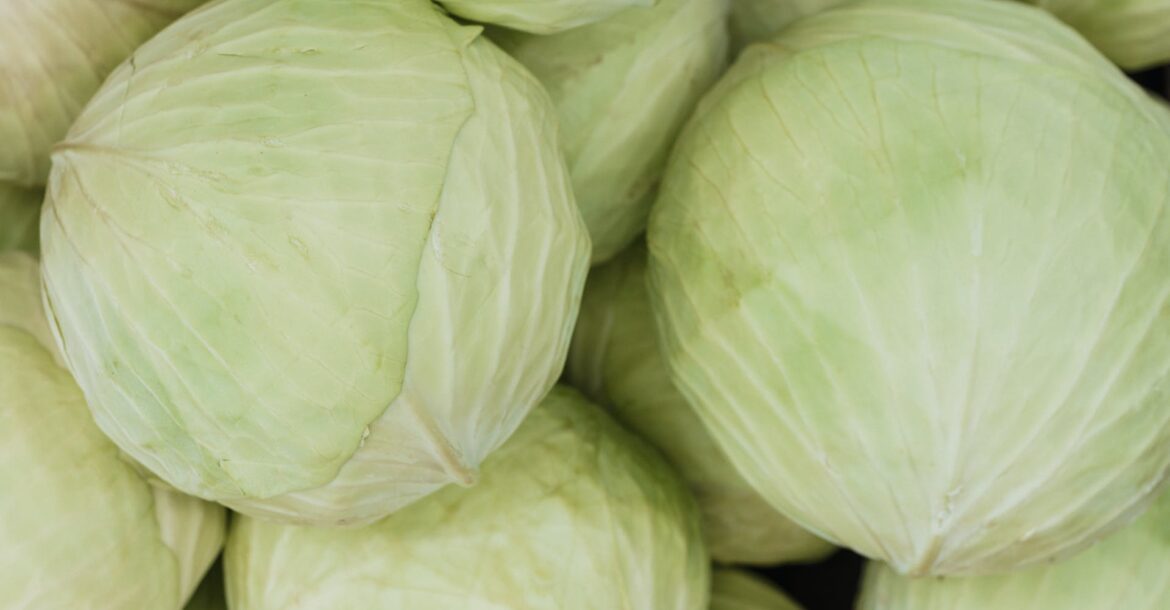
Cabbage, known for its versatility and numerous health benefits, is a cruciferous vegetable that has been consumed for centuries. In this article, we will delve into the nutritional value, traditional uses, and various types of cabbage while exploring the remarkable benefits it offers. Whether you enjoy it raw in salads, fermented as sauerkraut, or cooked in a hearty stew, cabbage has a lot to offer in terms of taste and health.
Nutritional Value and Health Benefits of Cabbage
Cabbage is a nutritional powerhouse, packed with essential vitamins and minerals. It is low in calories and high in fiber, making it a great addition to a weight management diet. One cup of chopped cabbage provides an ample amount of vitamin K, vitamin C, and vitamin B6, along with small amounts of other vitamins and minerals. Its high antioxidant content contributes to its potential in reducing inflammation and preventing chronic diseases.
In addition to its impressive nutritional profile, cabbage offers a range of health benefits. Studies have shown that regular consumption of cabbage may help lower the risk of developing certain types of cancer, including colon, breast, and prostate cancer. The presence of sulforaphane, a sulfur-containing compound in cabbage, is believed to have anti-cancer properties. Furthermore, the high fiber content in cabbage supports digestive health by promoting regular bowel movements and preventing constipation.
Cabbage is also known for its potential to support heart health. The fiber, potassium, and phytonutrient content in cabbage work synergistically to maintain healthy blood pressure levels. Additionally, the presence of anthocyanins, a type of flavonoid, may help reduce the risk of cardiovascular disease by preventing the oxidation of LDL cholesterol. Including cabbage in your diet may contribute to a healthier cardiovascular system.
The versatility of cabbage extends to its potential in managing diabetes. Studies have suggested that certain compounds found in cabbage may help regulate blood sugar levels. Its low glycemic index and high fiber content make it a favorable choice for individuals looking to control their blood glucose levels. By incorporating cabbage into balanced meals, individuals with diabetes can benefit from its nutritional value and potential impact on blood sugar regulation.
Also read: The Benefits of 11 Leafy Greens
Cabbage in Traditional Medicine
The use of cabbage in traditional medicine dates back centuries, with various cultures recognizing its medicinal properties. In ancient times, cabbage was utilized for its anti-inflammatory and healing properties. Poultices made from cabbage leaves were applied to wounds and inflamed areas to reduce swelling and promote healing. The cooling effect of cabbage leaves was also used to alleviate discomfort associated with skin irritations and joint pain.
In some traditional medicinal practices, cabbage was used to address digestive issues such as ulcers and gastritis. The high glutamine content in cabbage is believed to support the integrity of the gastrointestinal lining, potentially aiding in the healing of ulcers. Additionally, the presence of vitamin U, also known as S-methylmethionine, has been studied for its potential to protect the stomach lining and reduce the risk of gastric ulcers.
The traditional use of cabbage as a remedy for headaches has also been documented. In certain cultures, consuming cabbage or drinking its juice was believed to reduce the intensity of headaches. While modern research has not extensively explored these claims, the historical use of cabbage in such contexts reflects its longstanding reputation as a medicinal food.
Different Types of Cabbage and Their Benefits

Cabbage comes in various forms, each offering unique flavors and textures along with their own set of health benefits. Green cabbage, the most common type, is versatile and can be used in a wide range of dishes. Its mild flavor and crunchy texture make it suitable for salads, coleslaws, stir-fries, and soups. Red cabbage, with its vibrant color and slightly peppery taste, is rich in anthocyanins, providing powerful antioxidant properties.
Savoy cabbage, with its crinkled leaves and tender texture, is a popular choice for stuffing and braising. Its delicate flavor and attractive appearance make it a standout ingredient in recipes that call for visually appealing presentations. Napa cabbage, commonly used in Asian cuisines, offers a mild and slightly sweet flavor. Its versatility extends to being used in kimchi, stir-fries, and soups, adding a distinct taste to the dishes.
Beyond these well-known types, there are other varieties such as bok choy, Brussels sprouts, and kohlrabi that fall under the cabbage family, each with their own unique characteristics and nutritional profiles. Bok choy, for example, is rich in calcium and vitamin A, making it a valuable addition to bone health and vision. Brussels sprouts, known for their miniature cabbage-like appearance, are packed with nutrients and offer potential benefits for heart health and antioxidant support.
The benefits of consuming different types of cabbage are plentiful, with each variety contributing its own array of nutrients and potential health advantages. By incorporating a variety of cabbage types into your diet, you can enjoy diverse flavors while reaping the nutritional benefits that each type has to offer.
Also read: From Kitchen Staple to Superfood: Unearthing the Surprising Health Benefits of Onions
Conclusion and Final Thoughts
As we conclude our exploration of the remarkable benefits of cabbage, it is evident that this humble vegetable holds significant value in terms of nutrition and health. From its role in traditional medicine to its diverse array of types and their associated benefits, cabbage stands out as a versatile and beneficial addition to a balanced diet.
Whether you prefer it raw, cooked, fermented, or incorporated into a wide range of dishes, cabbage offers a spectrum of flavors and nutritional advantages. Its potential in supporting heart health, managing diabetes, and contributing to overall well-being makes it a valuable vegetable to include in your meals. As you continue to explore and enjoy the benefits of cabbage, remember to embrace its versatility and savor the numerous ways it can enhance your culinary experiences and promote your health.’






